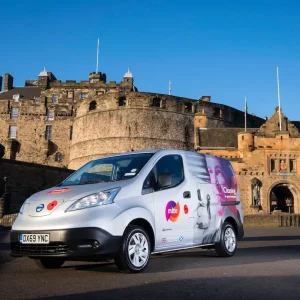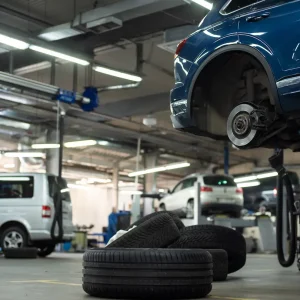Cars now park themselves, alert you if you’re drifting out of your lane, slow down if you’re too close to the vehicle in front – and ultimately, when driverless cars become popular, will remove the need to drive at all.
Does that mean driver training is destined to join the dinosaurs and dodos and become extinct?
Somehow I very much doubt it. After all, a plane can fly itself too, yet we all feel safer with a well-trained pilot on board!
But where will it all lead? At this stage, without a crystal ball the future is as unclear in my mind as it is exciting. I truly hope that technology makes a proper impact on safety and reduces road deaths and injuries – but the sceptic in me feels there’s a very long road ahead before we reach that goal.
The problem is that as the use of technology grows (both in-vehicle and on mobile devices), there’s a mounting conflict between what I would class as ‘good’ technology and ‘bad ‘technology’.
Good technology increases the safety of a vehicle, assisting the driver to avoid incidents. Bad technology is the ever-increasing bombardment of information likely to distract drivers. We’re even seeing new technology that combats bad technology – for example, ways of blocking your phone while driving.
So its pretty clear it’s going to take a while to settle, but what is for sure is that the driver training profession will need to adapt, and I feel it is doing so.
The experience of driving a vehicle today is very different to 20 years ago, and in 20 years time it will be very different again, and many online courses (including our own) cater for use of mobile phones, Sat Navs and other technology and the training continues to evolve as new gadgets come into play.
Fleet operators must also adapt. With technology advancing so quickly, driving policies and handbooks must be reviewed frequently to ensure they cater for all the new technology that affects drivers.
For example, are drivers allowed to use or wear smart watches while at the wheel? Is it clear whether a driver is ‘allowed’ by their employer to rely on a vehicle’s technology or remains responsible irrespective of what the car was meant to do automatically (e.g. failure of a parking sensor causing a driver to hit a fixed object).
The upshot is I believe the driver is always responsible if they are in charge of the vehicle. Making sure drivers realise this will be a key part of training going forwards. ‘Use the technology – but you are accountable for your safety and the safety of others’, would be my message.
So, to get back to the original question of whether driver training will become extinct, I don’t believe so.
On the contrary, I have a feeling it could become even more relevant and important as technology alters the way vehicles behave on our roads.





